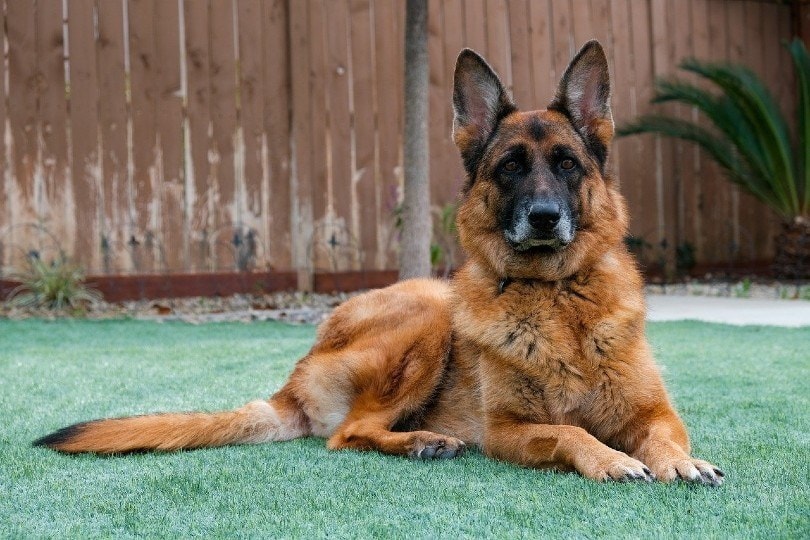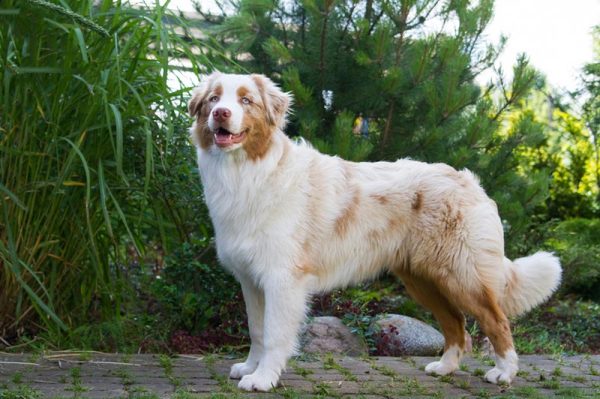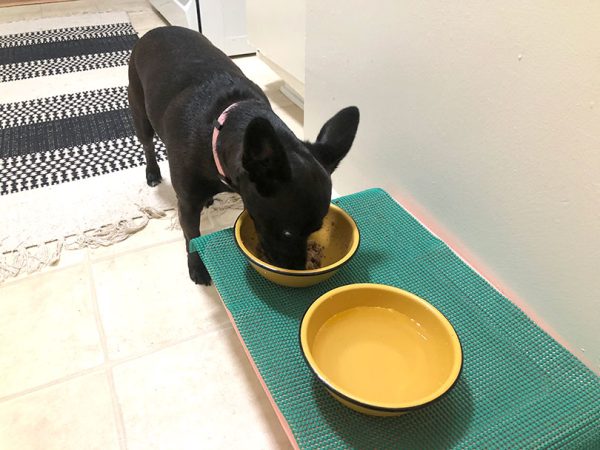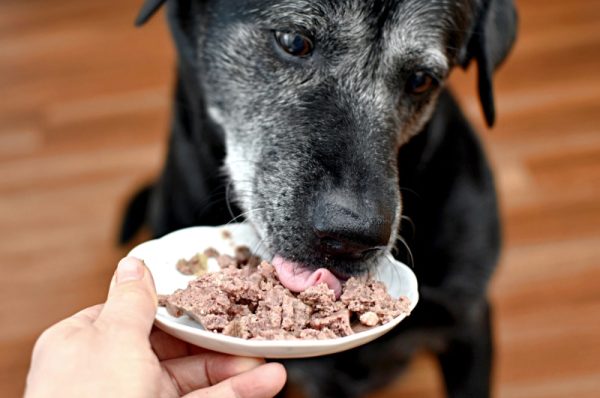One of the most difficult things about studying and working with animals is the fact that it is impossible to put yourself into the head of another animal. Animals cannot communicate with us in detailed ways. You can’t go into an animal’s head and sift through their memories. This has caused many people to have a lot of misunderstandings about dog memory. Do dogs remember the past? The answer to that question is yes. Dogs definitely remember the past. They just don’t remember things in the same way that humans do.
Here is everything you need to know about dog memory to help you better understand how your dog thinks, feels, and remembers.

Dog Memory
There has been a long-standing debate about how animals perceive memory. Some people believe that to have true memories, you must be self-aware. If you have no awareness of self, how can you put yourself into a memory? This might sound strange to people, but there are many who think that animals lack crucial pieces of self-awareness.
If you have no sense of identity, how can you rebuild a memory around a single entity of self? These questions have puzzled researchers for years, and they deeply affect how we study and understand dog memory. Scientists and behaviorists have a good understanding of how dogs’ short-term memory works, but there are still questions about how dogs remember and interact with long-term memory.

Dogs’ Short-Term Memory
Scientists have determined that dogs have a very small short-term memory1. Studies have shown that dogs only recall things for 2 minutes before they forget. That means if you are playing fetch with your dog, they will only remember the last couple of throws rather than the entire play session.
This small short-term memory also affects how dogs process training. Since dogs have such poor short-term memory, punishing or reprimanding them after the fact is not beneficial. For example, if a dog poops in the house and more than 2 minutes have passed, disciplining them will only confuse them since they won’t connect the discipline with the poop. That is why it is recommended to reprimand or praise a dog during or immediately after the act.
So yes, dogs remember the past, but not in the same way that people remember the past. Dogs have a vivid memory of the previous 2 minutes, but the memories begin to fall apart.
Dogs’ Long-Term Memory
If dogs have poor short-term memory, does that mean they have better long-term memory? Studies have shown that dogs might have a sense of episodic memory2, which is where memories play out in your head, like a short movie. Humans have episodic memory, and dogs’ show also have episodic memory and a complex representation of “self”’3.

Associative Memory
Dogs have a solid sense of associative memory. Associative memory is a way to connect with the past without fully remembering every detail about what happened. Associative memory connects emotions, feelings, and experiences to a person, place, or object without exactly remembering what happened. For example, if you grab a leash to take your dog for a walk and run to the door, they will likely have an associative memory.
Your dog will not remember the last walk they went on in great detail. They might not even remember that they went on a walk at all. Instead, your dog has a positive association with the leash. They know the leash means fun, excitement, and exercise, even if they don’t remember the exact details of the last walk.
This can also be true of negative emotions. If you have a dog that doesn’t like riding in the car or getting into a crate, they might not remember exactly why they don’t want to do these things. Instead, they are likely to have a negative associative memory.
This is a way to remember the past, but they are not remembering all of the details and aren’t playing out long stretches of time in their heads. You might cherish the memory of you and your dog playing at the beach for years to come, but your dog won’t remember it. Instead, they will remember having fun with you and having fun after getting into the car to go on a drive.

Canine Smell Is Connected to Memory
One reason that dogs have such powerful associative memories is due to their powerful sense of smell. Have you ever walked into a familiar place where you have not been in a long time and been hit with a scent that immediately takes you back into the past? That is how dogs go through life. Smells have powerful connections to how they navigate their environment and trigger their memories.
Dogs use their sense of smell to form memories, especially associative memories. Dogs do not have great eyesight, and they don’t have a great short-term memory, so they do a lot of remembering via their noses. In this way, dogs remember the past but do it through smells and feelings more than images and moving memories.
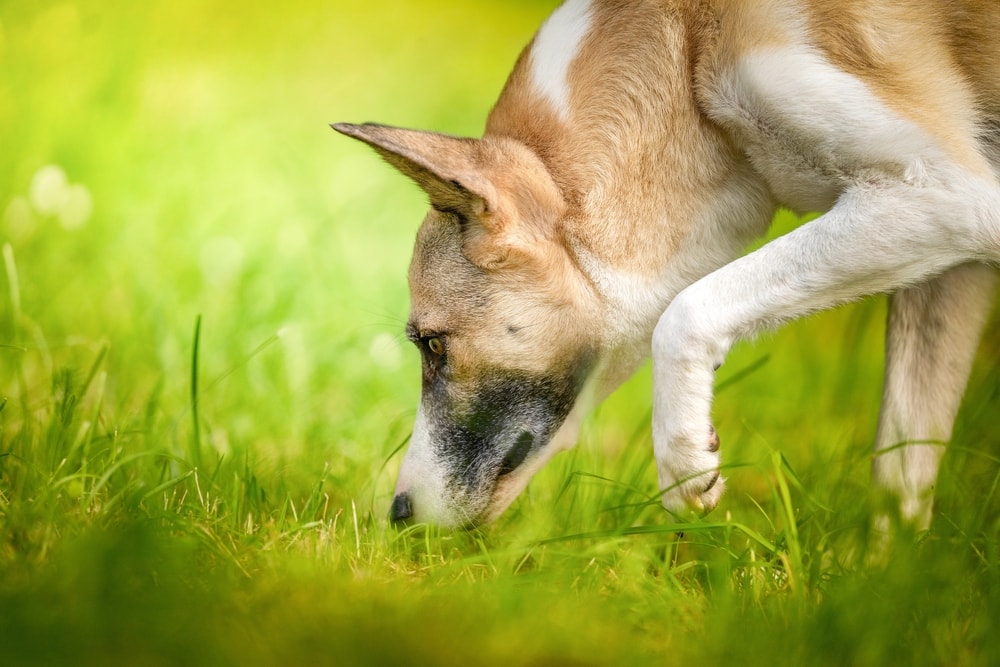
Do Dogs Remember Their Owners?
Yes. Dogs remember their owners. Despite having poor short-term memory, dogs remember their owners every day that they are living with them. Dogs are sad when you leave and excited when you come home. They know your face, your voice, and your scent.
Dogs can also remember their past owners. However, once an owner is no longer around every day, the memory of them will often fade into an associative memory. That means if the dog liked their previous owner and comes in contact with them after a year, they will have a positive feeling about the owner but might not remember any details about them.
The same goes for a bad owner. Dogs can carry negative associations about a person or location with them for years, which can cause them to be anxious or upset because of past events. You don’t have to worry about your dog forgetting about you. They might not remember every detail about your time together, but they will always have some sort of sensory and emotional memory of you.

Conclusion
Dogs remember the past, but the tricky part is trying to bridge a human understanding of memory with a dog’s understanding of memory. Dogs have self-awareness, episodic, and associative memory. They might not remember things the same way you do. However, dogs have strong associative memories and a strong link to memories via scent.
Dogs can remember their owners, even past owners, for years. They can also recall training, words, and experiences long after the fact, but how they remember it might not be the same way people recall previous events.
Featured Image Credit: Rob Wee, Pixabay
